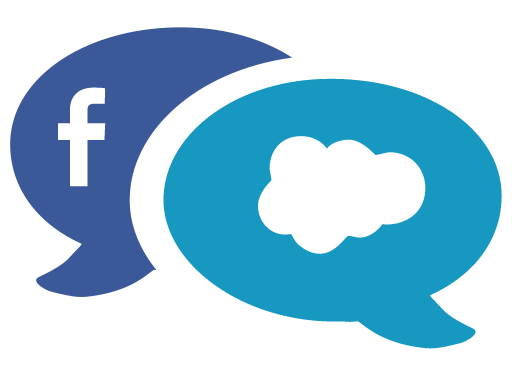Facebook CEO Mark Zuckerberg recently announced that the company was opening up its popular Messenger app to third-party developers. As many observers expected, Salesforce.com was one of the first companies to take advantage of this opportunity. On April 12th, the CRM leader announced an app that helps companies to manage and track their customer engagement on Facebook Messenger.
With more than 900 million users each month, Messenger presents an enormous opportunity for companies seeking to automate their marketing and service functions while engaging customers on a personal and immediate platform. “You’ll never have to call 1-800-FLOWERS again,” Zuckerberg said as he demonstrated ordering flowers in conversational language from an automated bot. According to Salesforce.com, Facebook Messenger provides companies with “a powerful new engagement channel that gives them a scalable way to communicate directly with customers.”
Messenger also has the added benefit of allowing companies to engage with customers on the platforms where they spend much of their time. And with Salesforce for Messenger, these interactions can be easily tracked and integrated into your existing customer relations platform.
The potential for Messenger is nearly limitless… it isn’t just for retail and service companies.
The potential for Messenger is nearly limitless. A traveler stuck on the runway might use the app to connect with her airline and rebook herself on a later connecting flight. An investor with an urgent question could use the app to contact his broker while grabbing a cup of coffee between meetings.

And Messenger isn’t just for retail and service companies. In his demonstration of the app’s many potential uses, Zuckerberg showed how CNN could send users news stories that become more and more personalized over time.
Facebook Messenger is full of possibility. But companies would do well to consider the many implications of engaging on this new channel.
Some questions that might be helpful in thinking about how to leverage the opportunities of Messenger: What resources are needed to manage this new channel? What communication is appropriate for Messenger and what isn’t? How can we scale our interactions on Messenger? How and how often do our customers use Facebook (and Messenger in particular)? How can we integrate this new channel into a seamless customer engagement strategy?
Facebook Messenger represents an interesting opportunity for companies looking to engage customers in an intimate and immediate manner on a platform where they already spend a good amount of time. Email is increasingly an anachronism, particularly with tech-savvy and younger customers. Salesforce for Messenger allows companies to leverage this new direct means of communication by integrating into a platform that provides “a single, cohesive view of each customer throughout the entire business.”
This opportunity, however, also raises a number of questions that are important to consider. Not all interactions will be welcome – imagine getting a sales pitch in Facebook as you’re trading summer BBQ recipes with a cousin. The context and expectations users have on Facebook are markedly different than in email.
Facebook Messenger could become an effective channel for companies to reach customers through the platforms where they prefer to interact.
That said, in today’s world, the boundaries between work and personal life are irreversibly blending together. It’s not a leap to think that, managed well, Facebook Messenger could become an effective channel for companies to reach customers through the platforms where they prefer to interact.
This opportunity, however, also raises a number of questions that are important to consider. Not all interactions will be welcome – imagine getting a sales pitch in Facebook as you’re trading summer BBQ recipes with a cousin. The context and expectations users have on Facebook are markedly different than in email.
That said, in today’s world, the boundaries between work and personal life are irreversibly blending together. It’s not a leap to think that, managed well, Facebook Messenger could become an effective channel for companies to reach customers through the platforms where they prefer to interact.
As the lines between business and community blur, so too do the boundaries between sales, marketing, and service. These developments represent a tremendous opportunity for companies looking to automate marketing and sales functions while increasing customer engagement. But, as with any opportunity, it is one that should be approached with a cohesive strategy in mind.
Have questions? Let us know in a comment below, or contact our team directly. You can also check out our other posts on customizing your Salesforce solution.